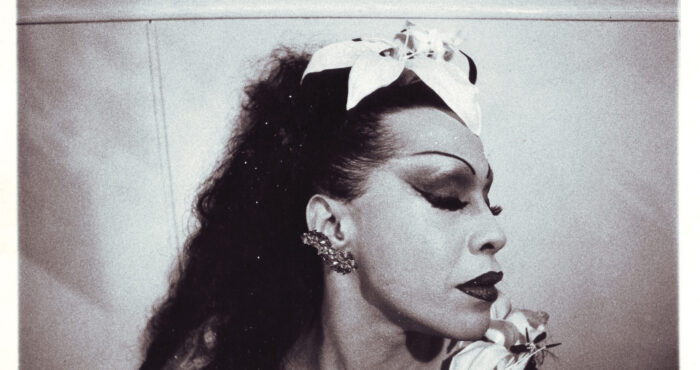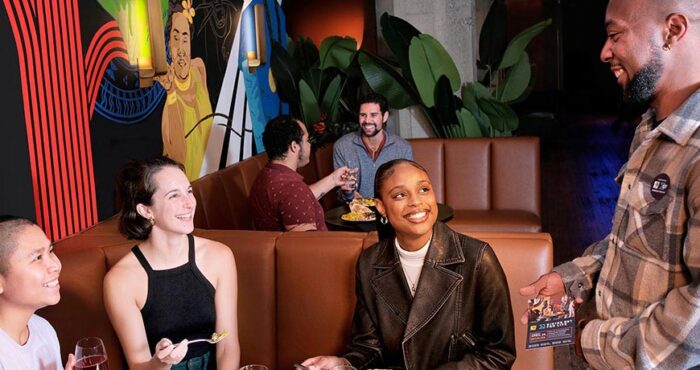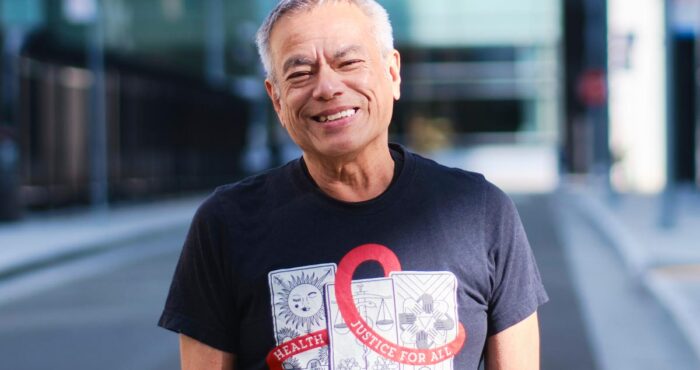In March 2021, San Francisco marked a year of shelter-in-place from COVID-19. For many in our community, it’s not the first time their lives and communities have been disrupted by a terrifying disease. We wanted to hear from the long-term HIV survivors among us: What has been their experience living through COVID-19? And, how has life changed–for the better or worse–in the past year?
James Frazier, who has lived in the Bay Area since 1994, and in Novato since 2005, shared that one silver lining has been the proliferation of online social and support groups that have emerged in the past year.
“I’ve been part of Black Brothers Esteem (BBE), a program of San Francisco AIDS Foundation, for about 10 years now,” he said. “But because I live in Novato, it takes me about an hour and a half each way to take Golden Gate Transit into the city. So being able to see BBE members in Zoom groups, that I access with my phone, has been really easy. I live alone, so it’s really important for me to be able to continue to see people virtually.”
Homer Hobi, a member of the Elizabeth Taylor 50-Plus Network, echoed similar sentiments.
“In some ways, the Zoom meetings are better than getting together in person because everybody can be there together. It’s easier for people with mobility issues. Before COVID-19, I had some health concerns that prevented me from going to the in-person 50-Plus Network meetings in the evening–especially during the winter when it was just too cold and dark outside. So I was just going faithfully to socialize at the Saturday morning 50-Plus Network coffee socials. When the pandemic hit, everything was cancelled. And so when the Zoom meetings started, it really was a lifesaver.”
Hobi said that the social support of these groups provides “tremendous advantages” to long-term survivors–especially now that they are being conducted online during COVID-19.
“They break down isolation that people have,” he said. “We’re at a point when we’re very much isolated. You want to make more friends, but it’s hard to make friends with people my age or older. They tend to die too often. So having these groups come together, with younger people too, is really helpful.”
For Paul Aguilar, who said his entire adult life has been overshadowed by HIV and AIDS, the COVID-19 pandemic has brought back similar fears and anxieties that were first provoked by AIDS. This time, he said, “I get to truly experience the fear, anxiety, hurt and frustration–but I won’t have the crutch of alcohol like I did back then. And, for good measure, I also get to experience echoes of the past as well.”
Unfortunately, said Aguilar, during this pandemic he has had to fight his natural instinct to give in-person help to those in need, which wasn’t the case during the height of the AIDS epidemic. Nobody knew exactly what to do during the early years of AIDS, he said, but the community saw people dying and knew they had to come together to support those living with and dying from AIDS.
Hobi, who is 75, has actually lived through three epidemics (polio, HIV, and now COVID-19). Hobi said he is hopeful for a post-COVID-19 world. He said he remembers the drastic change that happened after a polio vaccine became available.
“People had seen all of this devastation with polio. And we had just finished World War II just ten years earlier, and so people really believed in the power of science and had this really can-do attitude in the U.S. The next year after the vaccines, there was this incredible change. We could go back to swimming pools–we could do everything again. It was so wonderful, and it happened in a short period of time. Hopefully it will be the same for COVID-19.”









